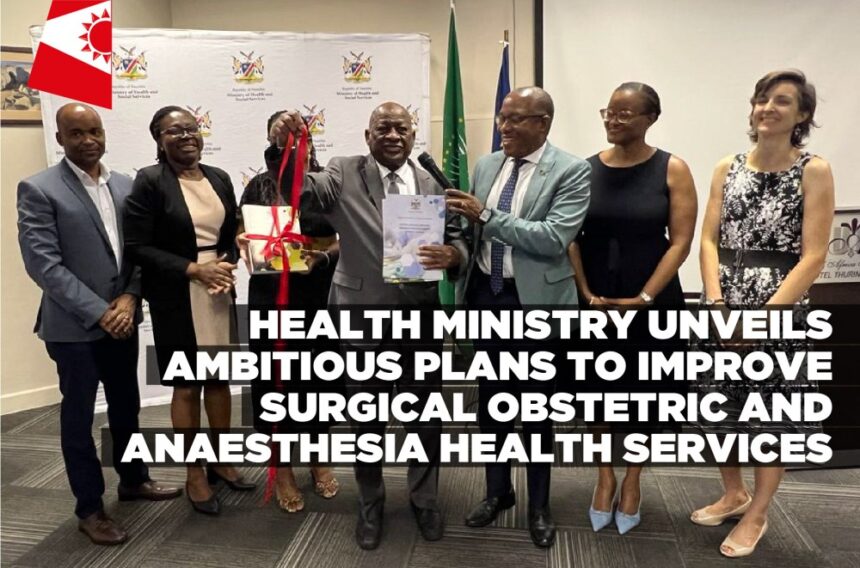Staff Reporter
THE Minister of Health and Social Services, Dr. Kalumbi Shangula, said that while Namibia has received recognition for its significant progress in reducing maternal mortality and managing communicable diseases, there is still more work to be done to enhance surgical care in the country.
The minister made these remarks during the launch of the National Surgical Obstetric and Anaesthesia Plan (NSOAP), the Infection Prevention and Control (IPC) Action Plan, and the Revised Guidelines for IPC. During this event, he explained that factors such as population growth, dispersed rural populations, and other public health priorities have placed pressure on the country’s ability to provide equitable and high-quality emergency care and surgical obstetric and anaesthesia services to those in need.
He explained that the NSOAP is therefore designed to address the challenges and shortcomings related to the provision of safe surgical, obstetric, and anaesthesia healthcare services.
“In response to the urgent need for accessible and high-quality surgical care, the ministry, in collaboration with our regional and international partners, has developed the National Surgical, Obstetric, and Anaesthesia Plan. This Plan is not just another strategic document. It is a roadmap toward achieving equitable access to safe and high-quality surgical obstetric and anaesthesia health services for all citizens across the country,” he said.
Shangula explained that the ministry engaged various stakeholders, healthcare professionals, and development partners to create a strategy that addresses the complexities of emergency and essential surgical conditions, from trauma and injury to childbirth complications and pediatric surgical disorders.
“Our goal is not only to address the burden of surgical conditions but also to strengthen our overall healthcare system. We are adopting a phased approach, with the Plan to be implemented in three stages, ultimately integrating National Surgical Obstetric and Anaesthesia Plan initiatives and outcomes into our National Health Strategic Plan,” the minister said.
He added that the NSOAP focuses on six crucial health system domains, which are surgical infrastructure and equipment, surgical service delivery, surgical workforce, surgical information management, surgical financing, and surgical system governance.
“To ensure the successful implementation of the National Surgical Obstetric and Anaesthesia Plan, the Ministry of Health and Social Services, with support from our healthcare partners, will allocate the necessary resources. The Ministry will take a proactive role in monitoring and evaluating the implementation process, involving all partners and stakeholders in continuous engagement to achieve our goal of Universal Health Coverage for all Namibians,” Shangula said.
The minister disclosed that the CSSD has been revised to support the implementation of the NSOAP. He explained that these guidelines will assist the administrative staff and healthcare workers in the operating theatre, anaesthetic services, and CSSD to ensure the smooth operation of these services. He added that it will also aid in the identification and management of risks in the operating theatre and CSSD.
Regarding the IPC Action Plan, Shangula highlighted that it addresses the challenges in preventing and controlling healthcare-associated infections. He explained that this plan is designed to strengthen the IPC program, implement evidence-based interventions in healthcare settings, enhance IPC education and training for healthcare workers, improve surveillance and reporting systems for Healthcare-Associated Infections, and enhance the monitoring and evaluation of IPC activities.
“The Ministry of Health and Social Services continues to design, roll out, and implement initiatives and programs aimed at strengthening our healthcare system, expanding access to and availability of services while making the healthcare system more robust. We believe that as disease burdens evolve, we need to implement appropriate tools that are responsive and fit for purpose. These tools may include policies, guidelines, and plans that enable health workers to be systematic in the provision of healthcare services,” he added.



Leave a Reply